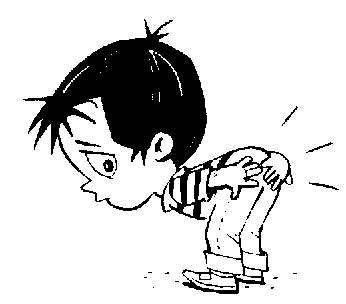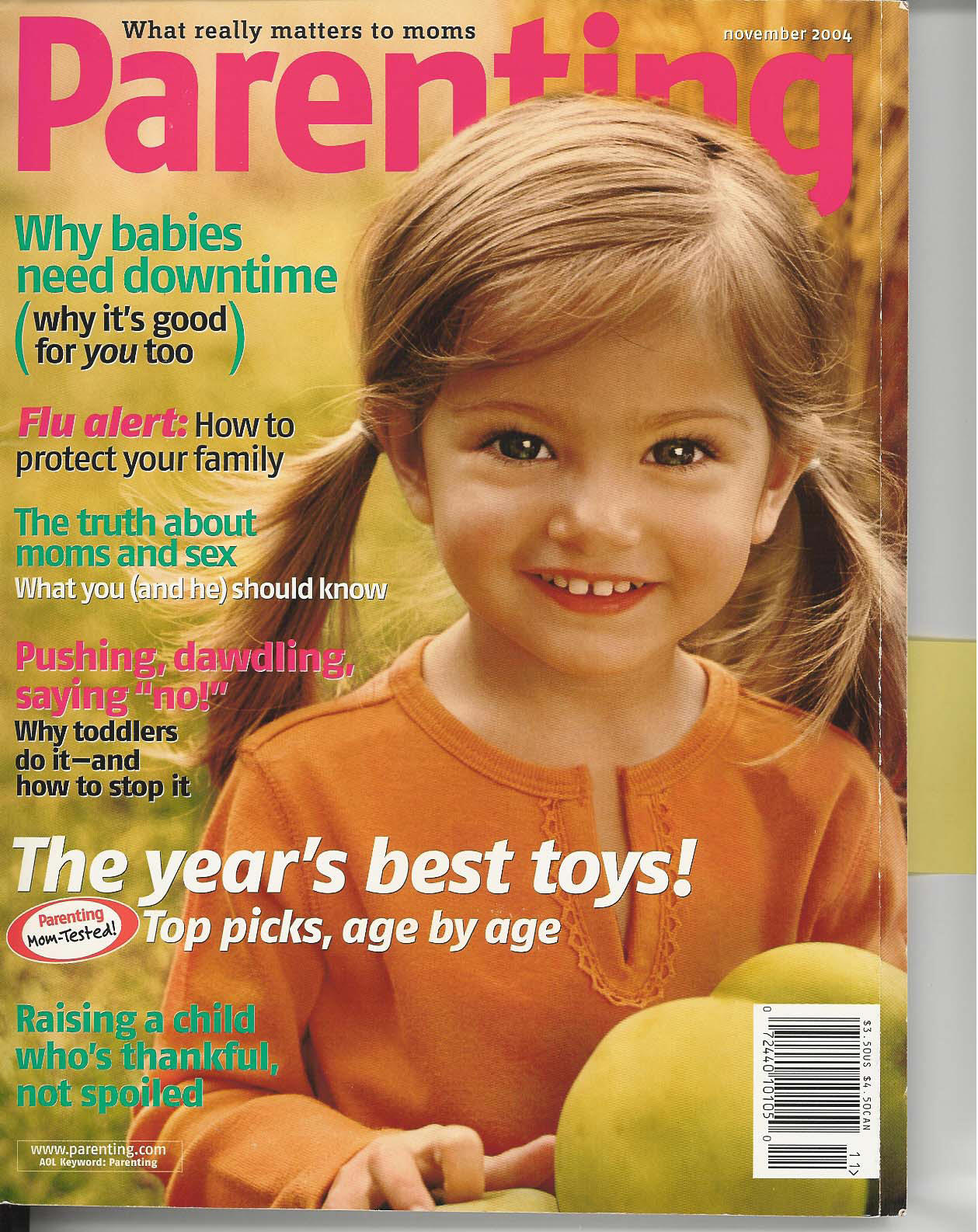Posts Tagged ‘Betsy Brown Braun’

 How do you define bratty behavior and how do you stop it?
How do you define bratty behavior and how do you stop it?
That is the question Hallmark Channel’s Home & Family co-hosts, bestselling author and chef Christina Ferrare and personality Mark Steines asked AJGpr client — parenting expert Betsy Brown Brown.
Betsy affirmed, “What parent hasn’t thought her child was a brat at one point or another And what child hasn’t been a brat at one point or another?” However a parent defines brattiness —
- Your child resorts to crying or yelling when they want something.
- Your child constantly throw tantrums when they don’t get what they want.
- Your child is rude to you, other adults, and even to other children.
- Your child refuses to share with other children.
- Your child always has to be the center of attention.
the list goes on… whether your child really is a brat, at risk of becoming one, or is simply trying to grow up, Betsy, a renowned child development and behavior specialist, shares her tried and tested brat busters with the Home & Family audience.
Tune in on Tuesday, March 18th at 10:00 am/9:00 am Central to watch Betsy Brown Brown talk about “How to Bratproof Your Child” on Home & Family.
ABOUT BETSY
Betsy is the bestselling author of Just Tell Me What to Say: Sensible Tips and Scripts for Perplexed Parents (HarperCollins) and You’re Not The Boss Of Me: Bratproofing Your Four To Twelve Year Old (HarperCollins). She blogs on parenting for the Huffington Post and has an “Ask Betsy” column in the Pailsadian Post and is an expert source for the on line parenting video resource Kids in the House.

Journalist Amber Narsulla, interviewed AJGpr client, Betsy Brown Braun for the online parenting site mom.me. Betsy is a child development and behavior specialist who weighed in on the question of taking kids out of school for family vacations.
Betsy says, “Some children are flexible and will transition easily back into the classroom, while others will struggle.”
For the full story click here.
Besty is the bestselling author of Just Tell Me What to Say and You’re Not the Boss of Me.
Why Your Kid Whines — and How to Get Her to Stop iVillage Turns To Betsy Brown Braun For Strategies
2012

Why Your Kid Whines — and How to Get Her to Stop
Bonnie Vengrow posted and article on children and whining on iVillage. To get some perspective on this developmental stage of childhood, she turned to my client, Betsy Brown Braun, child development and behavior specialist and best selling author of Just Tell Me What to Say and You’re Not the Boss of Me.
Here are the “expert strategies to stop your kid’s whining.”
You and your kiddo are chugging along nicely when, one day, she figures out that if she raises her voice, repeats herself over and over, and tosses in a few tears — presto! — she’ll get what she wants. Her latest discovery may mean frustration, aggravation and plenty of headaches for you. But like most developmental phases, whining can be temporary — so long as you nip it in the bud. We turned to the experts for their take on whining, and got tried-and-true advice on how to stop it fast.
A little perspective
Whining is about as aggravating as nails on the chalkboard and can make even the most level-headed mama want to scream. It’s the most annoying sound on earth, but it actually serves a good purpose. “It’s an all-important part of beginning to grow up,” says Betsy Brown Braun, child development and behavior specialist and author of Just Tell Me What to Say and You’re Not the Boss of Me. “Whining is his way of figuring out who he is separate from you, the parent. He’s not doing anything that’s wrong or unacceptable. We have to change the ways we react to it and how we reabsorb it.”

Back in June, my client, Betsy Brown Braun, blogged about spanking. I love what she has to say and wanted to share it with AJGpr readers.
Betsy is a parenting expert and the author of two best-selling books Just Tell Me What To Say and You’re Not The Boss Of Me.
To If Nor Spanking, Then What?
Seems like almost every parent today knows that spanking is verboten. Everyone except that parent who says, “My father spanked me, and I turned out fine.” To him I want to say, You don’t remember how you felt while you were being spanked—the terror, the helplessness, the anger.
Working with parents for 40 years has demonstrated to me that parents spank because they don’t know what else to do that “really works.” It is out of their simmering frustration that they resort to harsh physical actions like spanking, slapping, even pinching, or holding a shoulder just that much too tightly. But it’s all spanking. And it screams helpless parent, regardless of the child’s age, tot or tween. You are showing your weakness.
Children do not need to cry, to be hurt, to be shamed, or to shout “uncle” in order to learn the lesson you are trying to impart. The discipline (from the Latin root word which means learning or teaching) that is needed should be just that–the lesson that teaches not to do that again. It is a lesson that cultivates self-discipline. The child needs to learn; he doesn’t need to be hurt or humiliated. In fact, a child in those heightened emotional states will not learn. Rather, he will be focused on his anger at you, what a mean, bad daddy you are, not even thinking about what he did.
Here are some tips for what to do when you feel like spanking:
- Get a grip on your own anger. Grit your teeth and admit that you feel like walloping your kid. Then commit not to do it.
- Remind yourself that this is an opportunity for you teach and for your child to learn. Often children have to do the wrong thing on their way to doing the right thing. And yes, for that there is a consequence.
- Let the child know that whatever the behavior was, you are stopping it. Remove the child from the scene of the crime.
- Say as little as possible. “There is no throwing balls in the living room!” using your low, slow, icy voice. Mean business.
- Remove and isolate your child to a safe place away from you and the scene. No words.
- The key is to DISENGAGE. Do not give your attention of any kind, negative or positive. Nothing.
- When you have both come back to planet earth, even as long as an hour later depending upon the age of the child (the younger the child, the shorter the time), do your revisit.
- Have a short, direct conversation (and it may be one sided) about what happened and what will happen as a result.
- For children seven years old and younger, have your logical consequence ready to impose. (Logical consequences are directly related to the misbehavior.) You showed me that you do not know how to use balls responsibly. So, you will not be able to use balls of any kind for the rest of the week. If necessary, be prepared to take the rest of the family out to play ball. He’ll feel it! So sorry you can’t play with us
- For children older than seven, in addition to the logical consequence, there might be a removal of privileges, or he might have to earn the money to help pay the cost of replacing the window. He gets it.
- Know that it takes time for the lesson to take hold. Much like microwave cooking, it needs a standing time to begin to sink in.
- There is no one size-fits-all answer. Your response must be crafted to the particular child and the infraction.
- Remember, parenting by imposing fear is neither healthy nor effective.
You and your child need to be on the same team. You are both trying to get him to the same place, the place of making thoughtful, good choices for himself. And the very first chance you get, catch him doing the right thing. Praise works better than punishment and a whole lot better than spanking.

Writer Suzanne Schlosberg reached out to several parenting experts for her story in Parenting magazine on “How To Keep Control And Your Cool – While Your Kids Test Limits Every Which Way They Can.” My client, parenting expert Betsy Brown Braun was among the experts who weighed in on this important topic.
For the full story click here.
Betsy is the best selling author of award winning Just Tell Me What To Say and You’re Not The Boss Of Me,

If you missed Betsy Brown Braun’s appearance on MYFOXLA last May, or you don’t live in LA just click here and Betsy will provide you with tips on what do with your back talkin’ child.
Betsy is a child development specialist and the best selling author of award winning Just Tell Me What To Say & You’re Not The Boss Of Me,

My client Betsy Brown Braun, development specialist and best selling author of award winning Just Tell Me What To Say & You’re Not The Boss Of Me, has just posted this amazing blog on raising kids by example. Check it out below.
YOU ARE WHO YOU ARE WHEN NO ONE IS LOOKING
The mother unwrapped the straw, poked it into the little box, and handed the drink to her toddler as they walked out of the grocery store. The sliver of straw paper slipped from the mother’s hand. I doubt that she even noticed it.
Rolling my grocery cart back to its stable, I looked around to see how many carts were randomly parked, willy-nilly throughout the lot, nowhere near the stable. Who leaves her cart to roll into the next parked car?
Since my greatest interest and life’s work centers on parents and kids, the world is my lab. I notice random acts, relationships, and interactions wherever I go. Observing, noticing, gathering data, storing information, wondering. That’s me. Today at the grocery store I couldn’t help but think about where and how children learn to do the right thing, to make the right choices. Of course, “right” means different things to different people, but I’m thinking of generally accepted right. The answer is kind of complicated, but not really.
To do the right thing, children have to do the wrong thing. Sounds crazy, but it’s true. Much of growing up is trial and error, testing limits and boundaries. Do it wrong, experience the consequence, then do it right the next time. At least you hope it works that way. That’s certainly one of the ways kids figure out what is the right thing to do.
However, even without actively teaching your children, they learn from you because they copy you. Think about the things that you automatically do because that’s the way you’ve always done it. There is the great old tale of the mother who is preparing her Thanksgiving turkey with her adult daughter. The daughter asks, “Mom, why do you always cut off the end of turkey before you put it in the roaster?” The mother who has no answer, knowing only that she cut it because her mother had always done so, calls her own mother. “Mom,” she asks, “Why do we always cut off the end of the turkey before putting it in the roaster?” The grandmother replies, “So it will fit in my roaster.”
Over and over I remind parents that your kids are watching you all the time. It’s about how you live your life every day. If you ALWAYS hang up the clothes you tried on before you leave the store dressing room, the habit will become your child’s too. If you ALWAYS put you trash in the wastebasket, your child will do the same. If grocery shopping ALWAYS ends by returning your cart to the stable, not doing so won’t be a choice. Behaviors, right and wrong, become automatic when they are habitual. And so it will be for your absorbent child. Doing the right thing has a good chance of becoming ingrained in him, whether or not you are there watching.
Next week starts the Jewish High Holidays, the time of reflection: What has been in the year that has passed, and what will be going forward? Whether you observe the Jewish holidays or not, the fall is a good time for everyone to reboot. Are you a person who does the right thing when no one is looking? If your answer is yes, then it’s likely you’re teaching your child to do the same.


My client, parenting expert, Betsy Brown Braun, recently appeared on MyFoxLA to talk about the preschool application process.
Here’s some of her tips:
1. Consider the location – Traveling too far, too long in the car, is not good for the child, for the parent, or for the environment.
2. Consider the philosophy of the school – Every school has a different philosophy the educational philosophy and approach to child development. You need to agree with it.
3. Consider the director – Are you comfortable with that person? They hire the teachers who disseminate the educational philosophy – this is the person who will help and support you through all the trials you will experience in raising a young child.
4. Consider the culture of the school – This doesn’t refer to the ethnic culture. It is who the families are and if you feel aligned with them, if you speak the same language (they will be your friends forever.)
You can find Betsy’s books – Just Tell Me What To Say and You’re Not The Boss of Me on Amazon.
Executing Your Teens Laptop May Feel Good, But It’s Bad Say Parenting Expert Betsy Brown Braun
2012

Parents are angry about their teens abuses of Facebook, but should an angry dad wielding a .45 pistol, posted a YouTube video showing him firing bullets through his daughter’s laptop computer? Parenting Expert, Betsy Brown Braun says, “the difference between a sane, mature person and a child is that the mature parent is able to stop their impulses and do appropriate things that can help a child grow. It may not be what you want to do right now, what feels good, but it’s the thing that’s going to benefit the child three months, six months, years from now.”
For more on this story click here.
Betsy Brown Braun is the bestselling author of Just Tell Me What To Say and You’re Not The Boss of Me.


